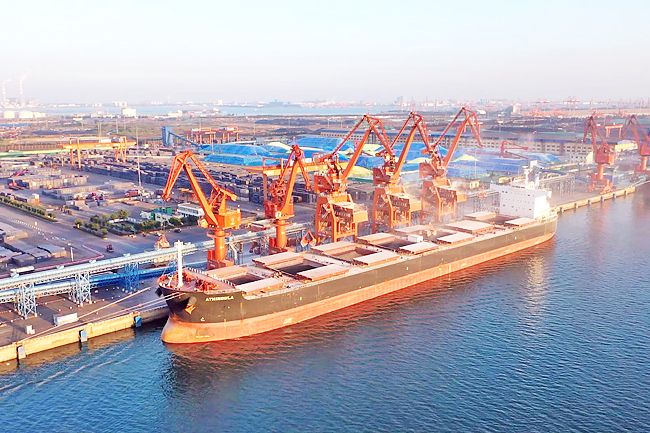BANGKOK (XINHUA) – China’s Belt and Road Initiative (BRI) strengthens production capacity cooperation among the Association of Southeast Asian Nations (ASEAN) countries, including Thailand, and deepens cooperation between ASEAN countries and China in various fields such as trade and production, said a Thai expert.
Bangkok-based Panyapiwat Institute of Management President Sompop Manarungsan told Xinhua in a recent interview that the ASEAN countries, most of which are developing countries, possess substantial economic growth potential, and have significant opportunities for cooperation with China in both infrastructure construction and capacity cooperation.
China is one of the most important trading partners for ASEAN countries. The upgrading of China’s industries and its high-quality development have far-reaching influences on ASEAN nations, Sompop said.
The Thai expert noted that the Regional Comprehensive Economic Partnership (RCEP) agreement and the China-ASEAN Free Trade Area agreement have further deepened trade and investment cooperation between ASEAN nations and China. “These agreements have expanded collaboration into emerging sectors such as the digital economy, the green economy, and interconnected supply chains, fostering mutually beneficial partnerships,” he said.
In recent years, Chinese companies’ continuous investments in Thailand have propelled the growth of industries such as electronics and new energy vehicles, he noted.
Sompop stressed the importance of not only strengthening cooperation in traditional fields, but also actively expanding collaboration in emerging sectors like green industries, medical and health industries, and high-tech services to inject further vitality into cooperation of the joint development of BRI.
According to the Thailand Board of Investment, foreign investment applications in the first half of 2023 amounted to THB364.4 billion, a 70-per-cent increase year-on-year, with China being the largest source of foreign direct investment (FDI) for the Southeast Asian country.







